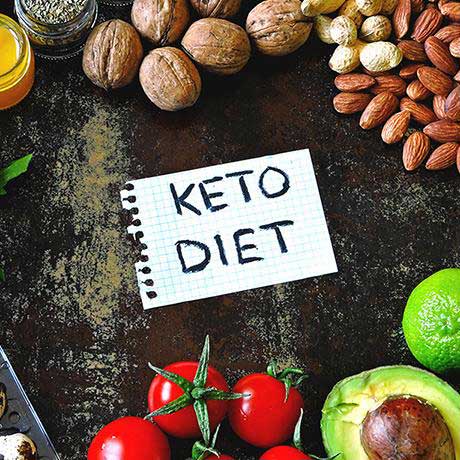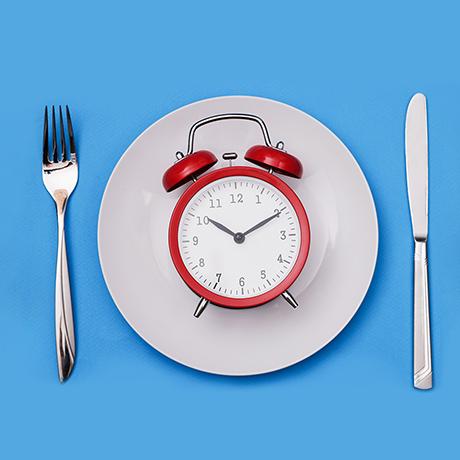What are meal replacement shakes?
Meal replacement shakes are specifically formulated beverages to provide a convenient and nutritionally balanced alternative to traditional meals. They are designed to be a quick healthy meal if you’re too busy to cook or you’re on the go.
They contain a balance of essential vitamins and minerals that mimic the nutritional profile of a well-rounded meal. They also contain a similar amount of calories to a meal.

Typically, they are available as powders that you mix with milk or water. You can also buy them as pre-made drinks.
With the variety of brands and products available, it’s important to know what to look for and what works for your lifestyle.
What do meal replacement shakes contain?
Meal replacement shakes are designed to mimic well-rounded meals, so they contain essential nutrients for a healthy diet.
Different brands differ in what they contain. However, they all have some core elements in common. These factors are important to consider based on your nutrition goals.
We looked at 4 different meal replacement brands and here’s what we found.
| Brand |
Calories |
Protein |
Carbs |
Vitamins & minerals |
| A |
225kcal |
15g |
33g |
23 |
| B |
400kcal |
22g |
35g |
26 |
| C |
249kcal |
28g |
20g |
28 |
| D |
396kcal |
20g |
54g |
14 |
Values are based on the recommended serving size.
Calories
Calories are an important element to consider when it comes to meal replacement, especially if you’re looking to lose weight.
We found that calories per serving ranged from 225 - 400kcal.
Low-calorie meal replacement shakes are designed to help regulate calorie intake whilst still consuming the right amount of key nutrients. They are ideal for people looking to lose weight.
Meal replacements that contain more calories are ideal for people looking to gain weight or muscle. They are typically low in fat and sugar, so are a healthy alternative to most high-calorie foods.
Protein
Protein is another significant element in meal replacement shakes. Protein is an important nutrient because it helps you feel more full. It’s also critical if you are looking to gain muscle mass.
We found 15 - 28g of protein per serving. These products tend to contain protein derived from animal-based sources like dairy. However, there are plenty of plant-based options if you are vegan.
Carbs
The carbohydrate content always varied extensively. Carbohydrates are essential for giving us energy throughout the day. We found that these brands contained 20 - 54g of carbohydrates per serving.
Low-carb diets like the ketogenic diets will suit meal replacements that contain fewer carbohydrates. There are specific meal replacement options for people on keto. On the other hand, more active people may require products with more carbohydrates.

Some products may specify they contain low glycaemic index carbohydrates. These carbs raise your blood sugar levels gradually, rather than causing a sudden glucose spike. This provides you with a gradual energy boost. It is better for people who have high blood sugar levels like with type 2 diabetes.
Vitamins and minerals
Most meal replacement drinks are fortified with crucial vitamins and minerals to mimic well-balanced meals. We found that these brands contained 14 - 28 vitamins and minerals. In some cases, replacement shakes might enrich your diet if you didn’t eat very nutritious meals before.
What is the difference between meal replacement and protein shakes?
There are a lot of diet drinks on the market, so it can be easy to get them confused. In particular, protein shakes can easily be confused with meal replacement shakes.
Meal replacement shakes are well-rounded and are designed to replace a full meal. So, they’ll have a diverse and unique set of macronutrients.

Protein shakes, on the other hand, are specialised supplements specifically for increasing protein intake without the calories from other nutrients. This means they are usually low in other nutrients like fats and carbohydrates.
They are mostly used by athletes or for people looking to gain muscle, while meal replacement shakes can have a variety of uses.
Do meal replacement shakes work for weight loss?
Research has shown that meal replacement can be very beneficial for weight loss.
One review
Trusted source
ScienceDirect
Peer-reviewed Journals
Multidisciplinary Research
Go to source
of 22 studies looked at the effects of meal replacements in overweight and obese people.
They found that the effects of low-calorie meal replacement on weight loss were superior compared to those who just followed low-calorie diets. In particular, they found that they saw the most benefits in those who substituted 60% of their daily calorie intake with meal replacement.

Another review
Trusted source
Wiley Online Library
Peer-reviewed Journals
Multidisciplinary Research
Go to source
looked at the effects of meal replacement in participants with type 2 diabetes. They found that participants on low-calorie and low-carb diet meal replacements achieved significant weight and BMI reductions.
However, meal replacements are not suited for everyone. Whether they help you achieve your weight loss goals is based on your lifestyle and your preferences.
How often should you have meal replacements for weight loss?
There is no definite answer for how often you should consume meal replacements.
There is some scientific basis. For weight loss, studies
Trusted source
ScienceDirect
Peer-reviewed Journals
Multidisciplinary Research
Go to source
have found that meal replacements are most beneficial if consumed 2-3 times a day for 3-6 months.
However, you should not replace every meal with meal replacements. Whole foods contain a lot of nutritional benefits that meal replacements do not have.
For example, probiotics and prebiotics are important nutrients for digestive health that meal replacements rarely contain.
What are the pros and cons of meal replacement shakes?
If you’re considering trying meal replacement shakes, it’s important to consider the potential advantages and disadvantages. This will help you decide whether they work for your lifestyle.
| Advantages |
Disadvantages |
- Easy and quick to prepare.
- Portable and easy to drink if you’re on the go.
- Can be beneficial for weight loss.
- Supplement certain nutrients.
- Healthier alternatives to fast-food options that are high in sugar and saturated fats.
|
- May not be suitable for certain dietary requirements and allergies.
- The variety of products available can make it difficult to choose one.
- Some people may not like the taste or texture.
- May be boring to have in the long term.
- Do not include some nutrients you can only get from whole foods (e.g. prebiotics).
|
Main takeaways
Meal replacement shakes can be a great way to improve your nutrition, especially if you have a busy lifestyle. They can be especially beneficial if you’re trying to consume fewer calories and lose weight.
However, it’s important to read nutrition labels to understand what brand works best for your lifestyle and your nutrition goals.
They should also be used as part of a healthy balance. Using them as an occasional meal substitute or under the guidance of a healthcare professional will help you see the most benefits from them.














